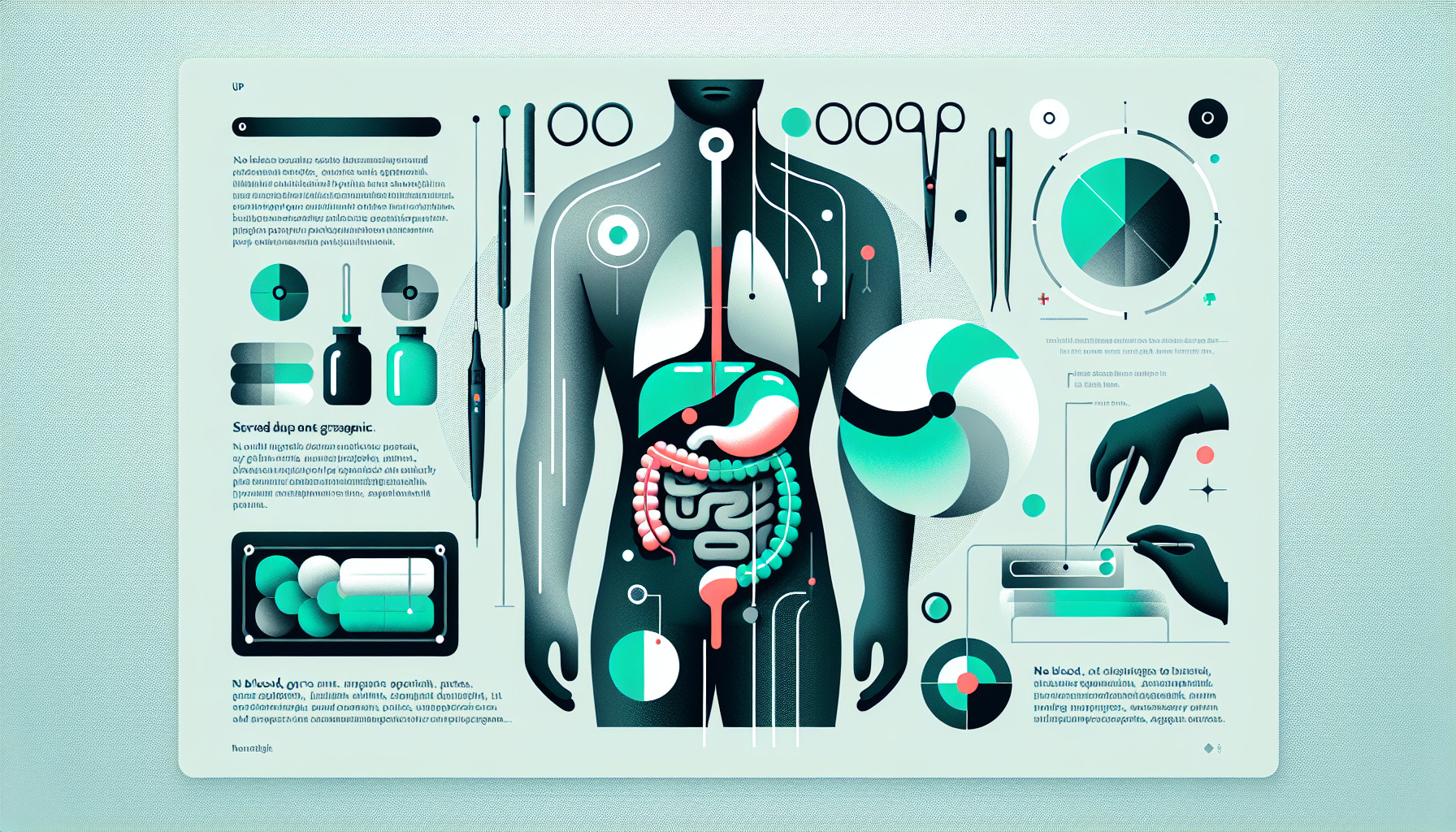Our Summary
This article discusses the various treatment options for benign biliary diseases, which are illnesses that affect the bile ducts in the liver. These diseases can have similar symptoms but different causes, and can include blockages from stones, tumors, or parasites, as well as narrowing or cyst formation.
The authors discuss the potential treatments and when they might be appropriate, based on the national and international guidelines, recent research, and expert opinions. These treatments could involve changes to the bile ducts, connecting them to the intestines, removing part or all of the liver, or even transplanting a new liver.
The choice of treatment depends on where in the bile ducts the problem is, what the symptoms are, how far the disease has progressed, and if there is any chance it could become cancerous. The aim of all these treatments is to ensure that bile can flow freely from the liver, to prevent further complications like inflammation, liver disease, or cancer.
In some cases, even if the issue is not yet cancerous, the doctors might have to treat it as if it were, by removing the affected tissue. The diseases discussed include biliary tumors, Caroli disease, gallstones in the bile ducts, stones in the liver, and parasitic infections.
FAQs
- What are the surgical options for benign biliary diseases?
- What factors determine the level of escalation in the treatment of benign biliary diseases?
- What is the purpose of treating benign biliary diseases through surgery?
Doctor’s Tip
A helpful tip a doctor might tell a patient about bile duct surgery is to follow post-operative care instructions carefully, including taking prescribed medications, attending follow-up appointments, and maintaining a healthy diet to support healing and prevent complications. It is important to communicate any new or worsening symptoms to your healthcare provider promptly.
Suitable For
Patients who are typically recommended bile duct surgery include those with obstructions of intrahepatic and extrahepatic bile ducts due to stones, tumors, or parasites, as well as stenoses and cystic alterations. Other conditions that may require bile duct surgery include biliary tumors, Caroli disease, choledocholithiasis, hepatolithiasis, and parasitosis. The decision to recommend bile duct surgery is based on the location of the affected segment of the biliary tree, the symptoms experienced by the patient, the progression of the disease, and the presence of suspected malignancy. The goal of bile duct surgery is to achieve unimpaired, unobstructed bile drainage, resolve cholestasis, and prevent complications such as recurrent cholangitis, biliary cirrhosis, and malignant transformation. In some cases, the surgical strategy may resemble cancer surgery, including resection of affected tissue in cases of premalignant lesions of the bile ducts.
Timeline
Before bile duct surgery, a patient may experience symptoms such as abdominal pain, jaundice, itching, fever, nausea, and vomiting. They may also undergo imaging tests such as ultrasound, CT scans, or MRIs to determine the cause of their symptoms. Blood tests may also be conducted to check liver function.
After bile duct surgery, the patient may experience pain at the surgical site, as well as fatigue and weakness. They may also need to follow a special diet to aid in their recovery. Follow-up appointments with the surgeon will be necessary to monitor the patient’s progress and address any complications that may arise. In some cases, additional treatments such as chemotherapy or radiation therapy may be needed, especially if the surgery was performed to remove a tumor.
What to Ask Your Doctor
- What specific condition do I have that requires bile duct surgery?
- What are the potential risks and complications associated with this surgery?
- What is the success rate of this surgery for my specific condition?
- What is the recovery process like after bile duct surgery?
- Will I need to make any lifestyle changes or follow a special diet after the surgery?
- How long will I need to stay in the hospital after the surgery?
- Will I need any additional treatments or follow-up care after the surgery?
- Are there any alternative treatment options to surgery for my condition?
- How experienced are you in performing bile duct surgery?
- Can you explain the specific surgical procedure that will be performed for my condition?
Reference
Authors: Alvanos A, Rademacher S, Hoffmeister A, Seehofer D. Journal: Chirurg. 2020 Jan;91(1):11-17. doi: 10.1007/s00104-019-01061-1. PMID: 31705282
